Introduction to American Studies 2202:
What's on TV: Race, Class, and Gender in American Television
Heroes (25 September 2006 - present)
"We all imagine ourselves the agents of our destiny capable of determining our own fate, but have
we truly any choice when we rise or when we fall? Does a force larger than ourselves bid us our
direction? Is it evolution that takes us by the hand? Does science point our way? Or it it God
who intervenes? Keeping us safe..."
--Dr. Mohinder Suresh, as voice-over narrator to begin Episode 2: "Don't Look Back (2 October 2006)
"For all his bluster, it is the sad province of man that he cannot choose his triumph. He can only
choose how he will stand when the call of destiny comes, hoping that he'll have the courage to
answer."
--Dr. Mohinder Suresh, as voice-over narrator to end the episode
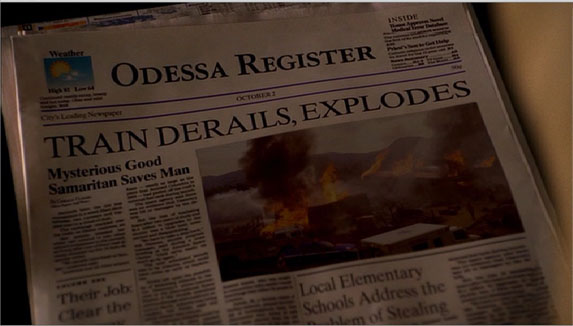
Figure 1:
The Odessa Register reports the cheerleader's heroics
Season 1, Episode 2: "Don't Look Back" (2 October 2006)
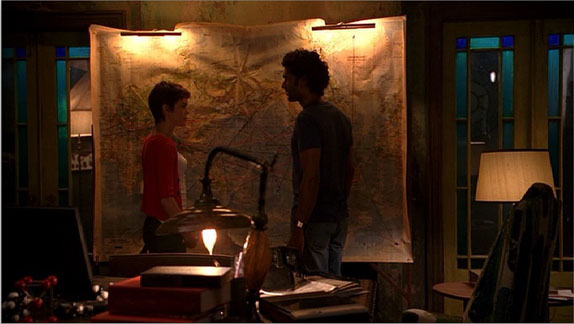
Figure 2:
Mohinder and Eden in front of Chandra's giant map
Season 1, Episode 2: "Don't Look Back" (2 October 2006)
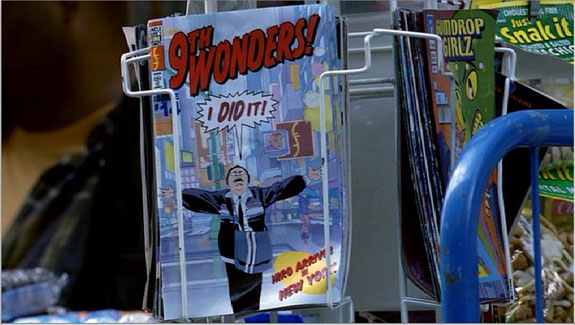
Figure 3:
Isaac Mendez's 9th Wonders with Hiro arriving in Times Square, NYC
Season 1, Episode 2: "Don't Look Back" (2 October 2006)
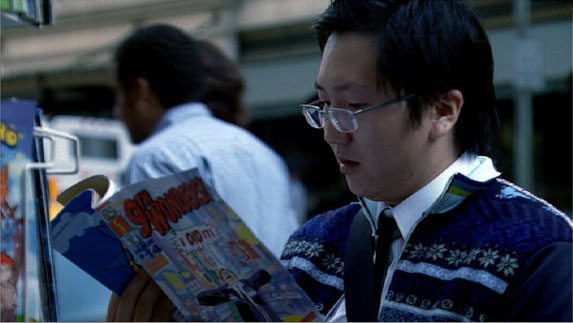
Figure 4:
Hiro reading about himself in the comic book
Season 1, Episode 2: "Don't Look Back" (2 October 2006)
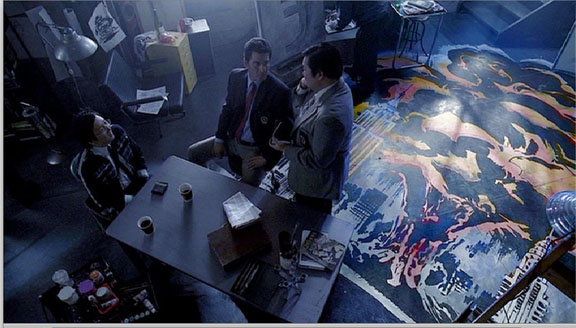
Figure 5:
Hiro being questioned about the murder of Isaac
Season 1, Episode 2: "Don't Look Back" (2 October 2006)
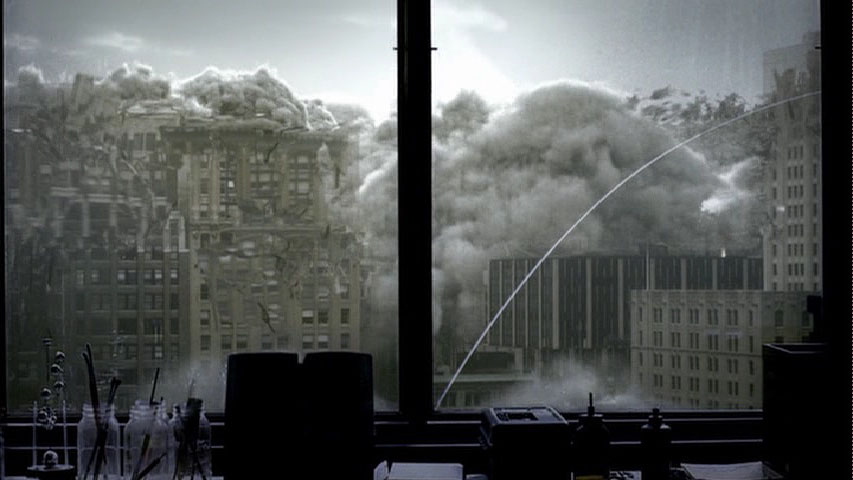
Figure 6:
The leveling of New York City as seen from Isaac's Brooklyn apartment
Season 1, Episode 2: "Don't Look Back" (2 October 2006)
(219) The spectacle erases the dividing line between self and world, in that the self, under siege by
the presence/absence of the world, is eventually overwhelmed; it likewise
erases the dividing line between true and false, repressing all directly
lived truth beneath the real presence of the falsehood maintained
by the organizaiton of appearances. The individual, though condemned to the passive
acceptance of an alien everyday reality, is thus driven into a form of
madness in which, by resorting to magical devices, he entertains the illusion
that he is reacting to this fate. The recognition and consumption of
commodities are at teh core of this pseudo-response ot a a communication to which
no response is possible. The need to imitate that the consumer experiences
is indeed a truly infantile need, one determined by every aspect of his
fundamental dispossession. In ters used by [Joseph] Gabel [in
False Consciousness (1962)] to describe quite another level of pathology,
"the abnormal need for representation here compensates for a torturing
feeling of being at the margin of existence."
--Guy Debord, The Society of the Spectacle (1967; New York: Zone Book, 1994), p. 153.





